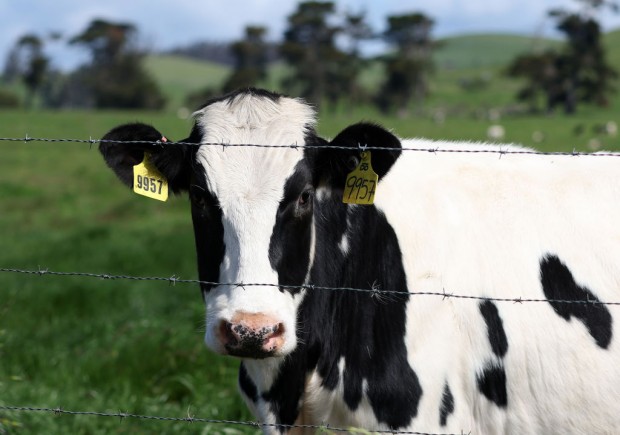Canada Tightens Import Requirements Amid US Dairy Cattle Outbreak Over Avian Flu Virus
By Madz Dizon
May 04, 2024 02:17 AM EDT
May 04, 2024 02:17 AM EDT

(Photo : Justin Sullivan/Getty Images)
In a statement released on Friday, the Canadian Food Inspection Agency (CFIA) announced that it has strengthened import requirements for US breeding cattle due to concerns regarding the H5N1 bird flu virus.
Reuters reported that there has been growing concern in the US about the spread of the Highly Pathogenic Avian Influenza (HPAI) virus to both animals and humans.
This concern was further heightened by the first confirmed case of HPAI in a dairy herd on March 25 and the second human case in two years on April 1.
In accordance with a statement, the CFIA has implemented stricter import requirements on dairy cattle from the US starting from April 29.
The CFIA has announced new import measures for cattle from the US These measures will now require negative HPAI test results for lactating dairy cattle, testing of milk at the retail level to detect viral fragments of HPAI, and voluntary testing of cows that do not show clinical signs of the virus.
READ NEXT: Maui Wildfires: Officials Sue Cell Carriers for Failing to Send Alerts During Deadly Lahaina Fire
Officials are set to carry out more rigorous testing of milk at the retail level in order to detect any viral fragments.
Voluntary testing will also be made available for cows that do not show clinical signs of HPAI, as part of the industry's enhanced biosecurity efforts.
Last week, the US Food and Drug Administration (FDA) revealed that approximately 20% of milk samples collected nationwide tested positive for fragments of avian flu.
According to The Canadian Press via MSN, there is reassurance that commercially sold milk and milk products are still safe for consumption. The process of pasteurization effectively deactivates the virus that causes HPAI, even if there are traces of the virus present.
If officials become aware of any possible food safety or animal health risks, immediate measures will be taken to help protect Canada's food supply and livestock, ensuring their safety and well-being.
READ MORE: Massive Fire Engulfs Brooklyn, New York Supermarket, Leaving 7 People Injured
© 2024 VCPOST, All rights reserved. Do not reproduce without permission.
Join the Conversation